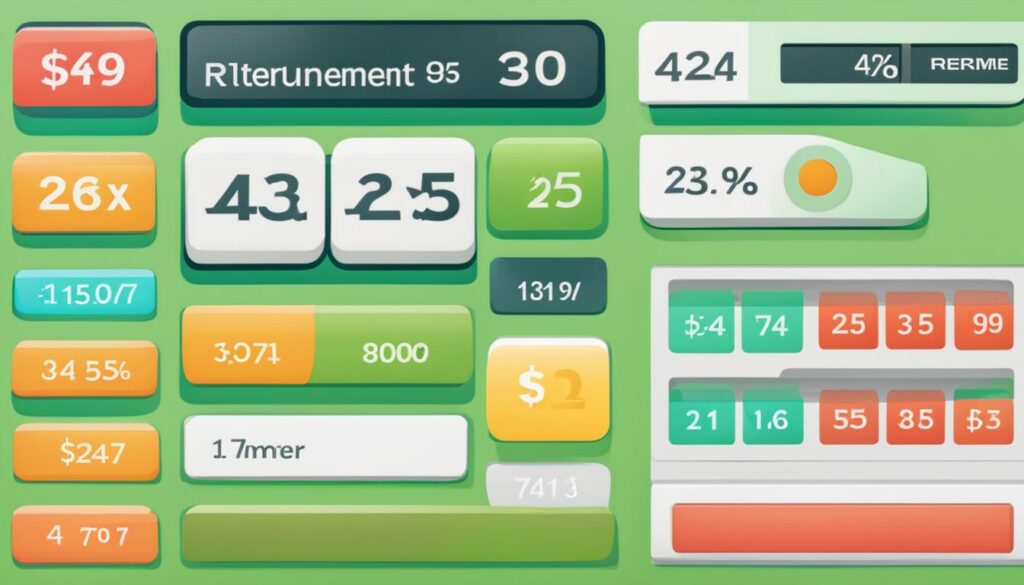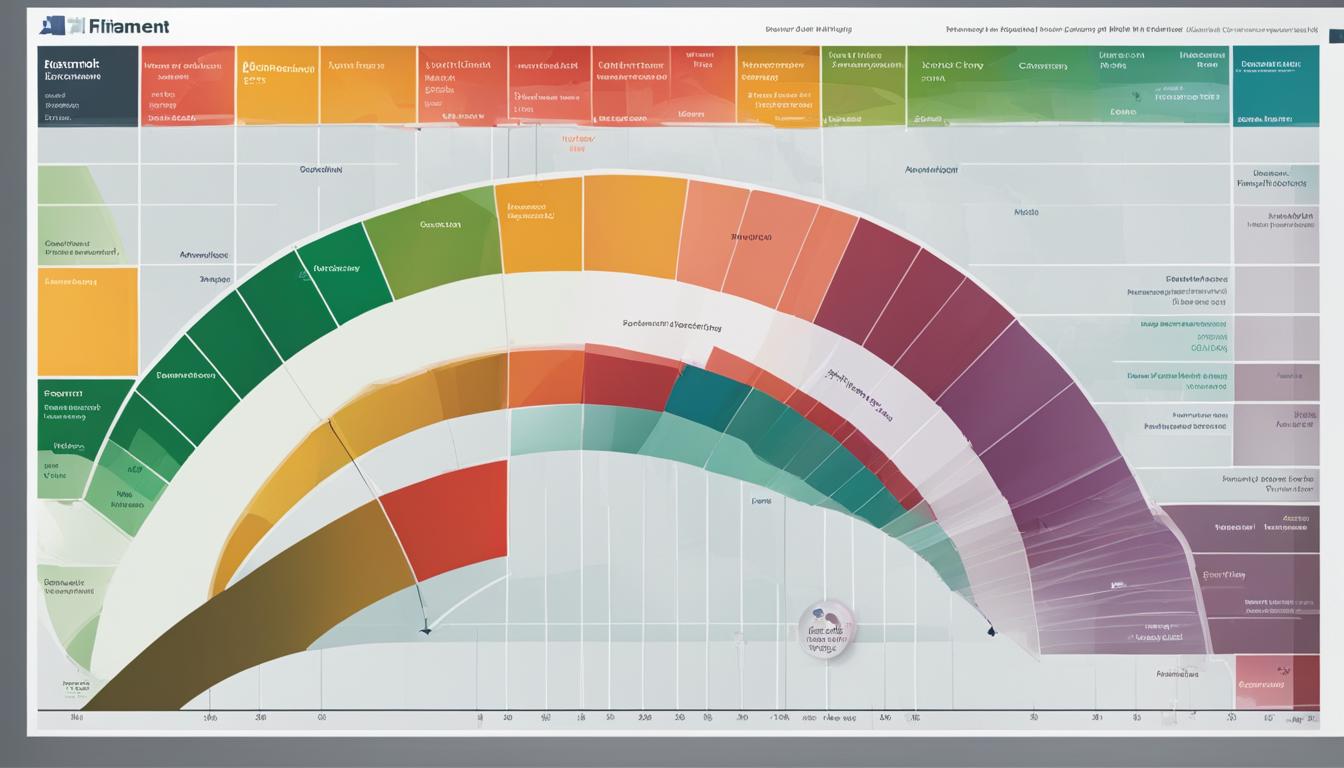As Americans approach retirement, the transition from earning a consistent paycheck to managing a fixed income can be daunting. Navigating this new financial landscape requires savvy Retirement Income Budgeting and a strategic approach to Retirement budget planning. This is not just about curtailing spending; it’s about deploying the right Retirement income management techniques to sustain a comfortable lifestyle while protecting your nest egg. Adapting to the financial shifts in Budgeting for retirement ensures you enjoy the fruits of your life’s work.
Retirement planning isn’t a one-size-fits-all. While traditional wisdom recommends expecting expenses to drop to 70-80% of your pre-retirement levels, the reality depends on individual factors such as lifestyle choices and health status. Retirement financial planning empowers retirees to understand their financial needs, anticipate future costs, and tailor a budget that factors in all sources of income including Social Security, 401(k)s, IRAs, and potential annuities. It also means taking a closer look at both essential and nonessential expenses, and preparing for higher healthcare costs, which tend to rise as we age.
Addressing retirement budgeting is a delicate balance between maintaining the life you want and being financially prudent. To ensure you’re on the right path, start with a clear assessment of your income streams and monthly expenses, factoring in the often-overlooked tax implications that can affect your bottom line.
Key Takeaways
- Effective Retirement income budgeting is essential for a sustainable post-work lifestyle.
- Proper Retirement budget planning helps prevent the premature depletion of savings.
- Accurate Retirement income management includes a thorough assessment of all available income sources.
- Expenses in retirement are not one-dimensional; a good budget accounts for both necessities and desires.
- The right Retirement financial planning strategy can help address the rise in healthcare costs during retirement.
- Understanding the tax implications of retirement income is crucial for a realistic budget.
Understanding the Importance of Retirement Income Budgeting
Entering retirement ushers in a stage of life where effective income management becomes paramount. Crafting a meticulous budget aligned with retirement goals ensures financial burdens are alleviated and a fulfilling retirement lifestyle is achieved. Emphasizing the utilization of Retirement income planning tools, adopting sound Retirement budgeting strategies, and absorbing valuable Retirement income budgeting tips is essential for navigating the golden years with confidence.
The Role of Retirement Savings and Social Security
In the quest for a secure retirement, the convergence of personal savings such as 401(k)s, IRAs, and the staple of Social Security benefits, form a critical income fabric. However, Social Security typically offers only a foundational level of support, propelling the need for robust personal savings to bridge the income gap.
Creating a Retirement Budget Plan
Central to securing your financial future is the inception of a comprehensive retirement budget plan. This roadmap delineates available income streams and juxtaposes them against expected monthly expenses. It appraises essentials, carving out necessary resources for living and healthcare costs while prescribing a separate allocation for discretionary indulgences.
Addressing the Concerns of Spending and Saving Balance in Retirement
Acknowledging the dichotomy between spending and saving in the post-working years is indispensable. Navigating this balance requires an approach that affords retirees the luxury of enjoying their accumulated wealth simultaneously with assuring longer-term fiscal security.
| Income Source | Monthly Earnings Estimate | Annual Adjustments |
|---|---|---|
| Social Security | $1,500 | COLA |
| 401(k)/IRA Withdrawals | $2,000 | Inflation Rate |
| Pension | $850 | Fixed |
| Part-Time Employment | $600 | Varies |
| Investment Dividends | $450 | Market Performance |
Retirement Income Budgeting: Assessing Your Financial Needs
As you step into retirement, understanding your financial landscape becomes more critical than ever. Effective budget planning for seniors ensures that monthly expenses are managed without compromising on the quality of life. Crucial to this planning is the utilization of a retirement income budget calculator, which provides a clear picture of the cash flow needed to maintain a comfortable retirement.
Calculating Expected Monthly Expenses Post-Retirement
Retirement brings with it a shift in how you’ll spend your money. Certain costs, like commuting expenses, may decrease, while others, such as recreational activities or medical expenses, may increase. To ensure these changes don’t disrupt your financial security, it’s important to use sophisticated tools like a retirement income budget calculator. This tool helps you forecast your expenses, allowing you to plan adequately for both fixed and variable costs.

Essential vs. Discretionary Spending
Breaking down your expenses into essential and discretionary categories can help you prioritize your needs and wants effectively. Essentials include fixed expenses such as housing, utilities, food, and healthcare, which should form the backbone of your budget. Conversely, discretionary spending on leisure and hobbies should be adjusted based on the remaining budget to enjoy a fulfilling retirement without financial strain.
- Housing: Mortgage or rent, property taxes, repairs
- Utilities: Electricity, water, internet
- Food: Groceries, dietary needs
- Healthcare: Insurance premiums, out-of-pocket costs, medications
Understanding and planning for these expenses can help you maintain a balanced budget tailored to your retirement lifestyle.
Maximizing Your Retirement Income Streams
As retirees transition into their golden years, effective retirement income management becomes essential for sustaining a lifestyle that they have worked hard to achieve. Crafting and adhering to sound retirement budgeting strategies ensures that income streams are maximized for long-term stability. Taking a strategic approach to handle your retirement finance can make a significant difference in the quality and security of your post-working years.

Optimizing Social Security Benefits
It’s well-advised for retirees to carefully plan the timing of their Social Security benefits. Early claimants could face a reduction in their monthly benefits, while delaying the start could result in significantly larger payouts. Weighing the pros and cons of different claiming strategies is critical in order to optimize the benefits that will act as a primary income source for many retirees.
Exploring Pension and Annuity Options
Further bolstering retirement funding involves a deep dive into pension plans and annuity options. Pensions provide a reliable source of income, delivering financial reassurance through regular payments. Annuities also play a pivotal role; they can be structured to offer payments that continue for life, underscoring the value of integrating these options into your retirement plan. A thorough examination of these financial tools is paramount for a holistic approach to income during retirement years.
Investment Strategies for a Sustainable Retirement
Navigating the sea of retirement requires not just a sturdy vessel but a well-charted course, especially when it comes to maintaining a retirement lifestyle that keeps up with the ever-rising tide of expenses. Retirement financial planning and retirement budgeting strategies must include investment plans that carefully balance risks with steady growth, ensuring that retirees’ nest eggs can withstand both the test of time and the unpredictable waves of the market.
Understanding Withdrawal Rates and Investment Diversification
One guiding principle in the safe harbor of retirement savings is the withdrawal rate—often recommended to start at 4%-5% in the initial year post-retirement, with adjustments for inflation thereafter. Yet, sticking to this guideline alone is not a panacea; the role of investment diversification is just as crucial. A mix of stocks, bonds, and other investment vehicles fosters a resilient portfolio that can ride out market tumults. This multipronged approach is integral to retirement budgeting strategies that seek to protect and grow retirees’ hard-earned savings, leading to a serene financial future.
The Impact of Market Fluctuations on Retirement Savings
Moreover, understanding and preparing for the inevitable impact of market fluctuations on retirement savings is vital. As the financial landscape ebbs and flows, so must the strategies that safeguard one’s fiscal longevity. Embracing senior-friendly investment solutions, such as target-date funds and seeking professional portfolio management, can help stabilize retirement funds, allowing retirees the freedom to enjoy the fruits of their labor without the constant worry of financial instability. Ultimately, a well-rounded retirement financial planning strategy is akin to a lighthouse, guiding retirees safely through their golden years.
FAQ
Why is retirement income budgeting important?
Retirement income budgeting is crucial for ensuring that your savings last throughout your golden years and that you have a structured plan for covering both essential and discretionary expenses. Effective budgeting helps manage the transition from a steady paycheck to relying on diverse income streams such as Social Security, pensions, and retirement accounts.
What is the role of retirement savings and Social Security in retirement planning?
Retirement savings from accounts like 401(k)s and IRAs are vital for supplementing Social Security benefits, which alone may not be enough to cover all retirement expenses. These savings provide a buffer and act as additional income streams to support a comfortable retirement lifestyle.
How do I create a retirement budget plan?
To create a retirement budget plan, start by assessing all potential income sources, including Social Security, pensions, and savings. Then, project your monthly expenses, dividing them into essential and discretionary categories. Use retirement income planning tools to match income with expenses and prioritize spending to ensure financial stability.
What are some retirement income budgeting tips?
One key tip is to understand your fixed and variable expenses to allocate funds accordingly. Plan for increased healthcare costs and be mindful of taxes on retirement income. Use a retirement income budget calculator to estimate expenses accurately. Maintain a balance between spending on needs and enjoying leisure activities within your budget.
How do I calculate expected monthly expenses after retirement?
Use a retirement income budget calculator to estimate your monthly expenses, accounting for both essential costs like housing, utilities, and healthcare, as well as discretionary spending. Adjust for changes such as reduced transportation costs if you’re no longer commuting, or increased leisure or travel expenses.
How should I differentiate between essential and discretionary spending?
Essential spending covers basic necessities such as housing, food, healthcare, and utilities, which are non-negotiable and must be prioritized. Discretionary spending includes lifestyle choices like travel, hobbies, and dining out, which should be aligned with the remaining budget after covering essential expenses.
How can I optimize my Social Security benefits?
To optimize your Social Security benefits, consider delaying the start of benefits until full retirement age or even later, up to age 70, to increase the monthly payment amount. Analyze various claiming scenarios to determine the most beneficial strategy for your financial situation.
What should I consider when exploring pension and annuity options?
When exploring pension and annuity options, consider factors such as the stability of the pension provider, the terms of the annuity contract, fees involved, inflation protection, and how these income streams fit into your overall retirement income plan. Seek professional financial advice to evaluate these options based on your individual needs.
What are sound withdrawal rates and investment diversification strategies?
A commonly recommended sustainable withdrawal rate from retirement accounts is 4%-5% in the first year, adjusted thereafter for inflation. Diversify your investments to minimize risk, including a mix of stocks, bonds, and other assets to provide income and protect against market volatility. Consider your risk tolerance and retirement timeline when making investment decisions.
How do market fluctuations impact retirement savings?
Market fluctuations can significantly affect the value of your retirement investments, potentially reducing the money available for withdrawals. Continuous financial planning and adjustments are necessary to account for market changes, ensuring your savings can support you throughout retirement. Employ strategies like rebalancing your portfolio or setting aside a cash reserve to mitigate these risks.



